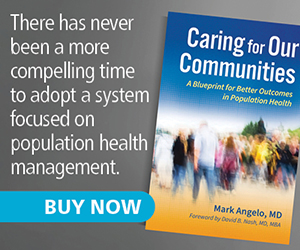
- Spotlight:
Meet ACHE’s New Elected Officials - Benefits of Disability Inclusion in the Workplace
- Boston Cluster Aims to Build a Better Future
- Latest Journal of Healthcare Management Identifies Need for Work/Life Balance
- Baldrige Award Application Deadline Extended
Meet ACHE’s New Elected Officials
ACHE’s 2024–2025 Chair Officers were installed March 23 during the Council of Regents meeting preceding ACHE’s 67th Congress on Healthcare Leadership. They include:
- Chair: William P. Santulli, FACHE, president, Advocate Health-Midwest Region, Downers Grove, Ill. Get to know ACHE’s new chair in this profile about his professional journey and his plans for ACHE in the year ahead.
- Chair-Elect: Michele K. Sutton, FACHE, president/CEO, North Oaks Health System, Hammon, La.
- Immediate Past Chair: Delvecchio S. Finley, FACHE, president, Atrium Health Navicent, Macon, Ga.
Additionally, four new Governors were elected to serve three-year terms on the Board of Governors. They are:
- Ajani N. Dunn, FACHE, is CAO, Mayo Clinic in Florida, Jacksonville, (Fla.).
- Wendy M. Horton, PharmD, FACHE, is CEO, UVA Health University Medical Center, Charlottesville, Va.
- Alfred A. Montoya Jr., FACHE, is acting assistant under secretary for health, support services and deputy assistant under secretary for health, operations, Veterans Health Administration/Department of Veterans Affairs, Washington, D.C.
- Monica C. Vargas-Mahar, FACHE, is the market CEO, Carondelet Health Network, and CEO, St. Joseph’s Hospital, Tucson, Ariz.
Finally, 20 healthcare executives were elected to serve three-year terms as ACHE Regents, and one has been appointed to serve as Regent-at-Large for District 2. They also took office March 23 at the Council of Regents Meeting. In addition, two Regents were appointed to represent members on an interim basis in Missouri and with Veterans Affairs, and one Regent-at-Large has been appointed on an interim basis to serve District 5.
Visit ache.org/Leadership to learn more about the 2024–2025 Board of Governors and Council of Regents. ACHE thanks Board members and Regents who completed their terms in 2024 for their commitment to healthcare leadership.
Benefits of Disability Inclusion in the Workplace
Individuals with disabilities make up an estimated 61 million Americans, and while 90% of companies have diversity priorities, only four percent factored in disability. John W. Sharpe, FACHE, director, spinal cord injury and disorders rehabilitation therapy services, Central Virginia Veterans Health Care System, Richmond, Va, and the Regent-At-Large for District 6, understands this firsthand.
In his recent blog post, Sharpe discusses disabilities—both seen and unseen—including his own “invisible disability” from his time in the Air Force. He sustained a severe traumatic brain injury while on active duty. He spent more than 40 days in a coma and was on life support. Now, more than 33 years later, he talks about living with a hidden disability.
Sharpe reminds us that disability does not mean inability. He explains that the main reason organizations don’t invest in a disability-inclusive initiative is that employers falsely believe that people with disabilities are unable to do the jobs they have available. In fact, a recent survey he cited indicates,“nearly all managers (92%) who are aware that one or more of their employees have a disability said those individuals perform the same as or better than their peers who don't have disabilities.”
Sharpe exemplifies this by how his career has progressed. As further proof of his message, Sharpe points to research from Accenture that shows companies using best practices to employ individuals with disabilities actually outperform their peers. Read his entire blog post here.
Boston Cluster Aims to Build a Better Future
If you missed Congress and are looking for an in-person education opportunity, join us for the Boston Cluster July 29–31. You’ll be able to polish your skills, network with colleagues and earn up to 24 ACHE In-Person Education credits.
These interactive seminars—developed by respected healthcare experts—are designed to give you the skills, knowledge and mindset required to help you lead your staff and organization toward future success.
While the event spans three days, there are several options for one or two-day seminars that allow you to create a schedule to suit your needs, or maximize your time by selecting multiple seminars.
Learn more about these sessions including: “Mentor, Coach, Lead to Peak Professional Performance,” “Retooling for the Future in Healthcare Operations: The Changing Roles of Leaders,” or “Be the Best Part of Their Day: Supercharging Communication With Value-Driven Leadership.”
Other sessions focus on delivery disruptions, building a board of directors and effective leadership crisis.
For a full description of the seminars and to register, visit the Boston Cluster.
Latest Journal of Healthcare Management Identifies Need for Work/Life Balance
In the March/April Journal of Healthcare Management, Tait Shanafelt, MD, Stanford University, Leslie Athey, ACHE, and colleagues publish a study that investigates the impact of work on healthcare executives’ personal and professional relationships. The authors suggest that organizational policies should enable leaders to set clear boundaries between work and non-work time, to promote personal and professional fulfillment.
In another feature, Prathibha Varkey, MD, president, Mayo Clinic Health System, looks at digital health—particularly AI and automation—as it gains momentum and investment to learn whether we are integrating these tools to create sustainable change and improve patient safety.
Mohamed Elsaqa, MD, and colleagues use control and intervention design to review how hospitals optimize operating room scheduling to improve the utilization of resources. Other research articles in this issue examine broad care coordination programs for children with developmental disability and utilization of electronic health record system to affect hospital quality outcomes. You’ll also find a follow-up on Scripps Health’s successful rapid response approach.
Visit ache.org/Journals to read the full March/April issue of the Journal of Healthcare Management.
Members in the News
Visit ACHE Members in the News to read about Fredericka Ford, who was named CEO, Recovery Center of America Capital Region, Waldorf, Md. Also learn about Kevin A. Vest, FACHE, who was appointed network vice president, cancer clinical programs, University of Vermont Cancer Center and UVM Health Network, Burlington, Vt.

